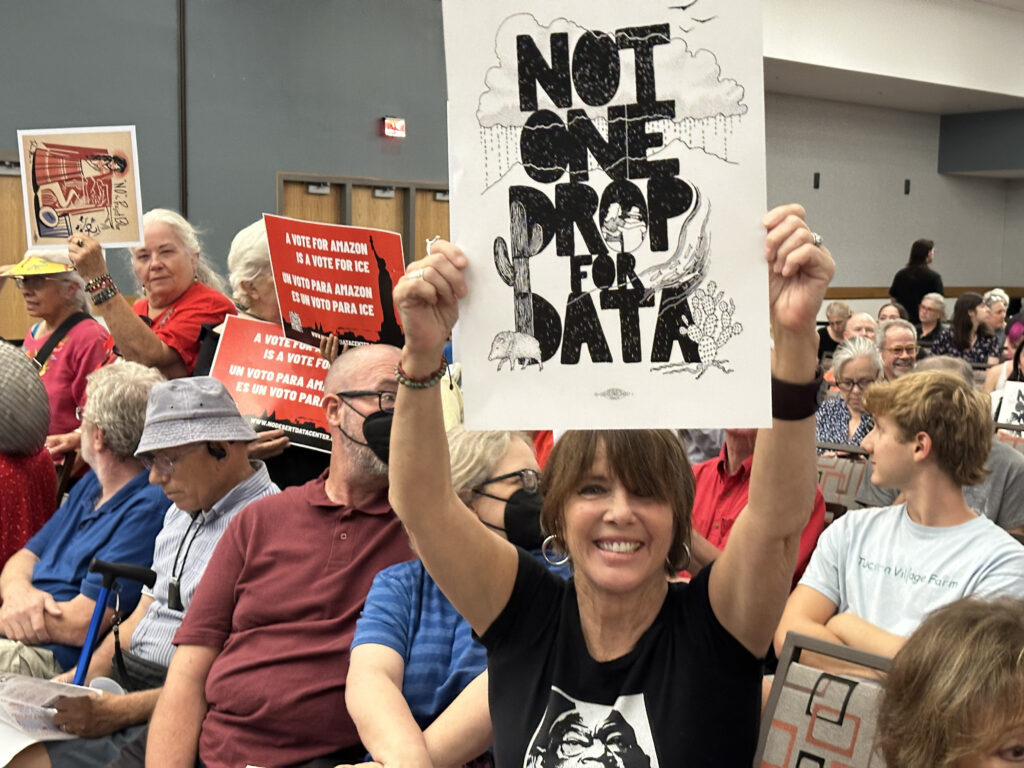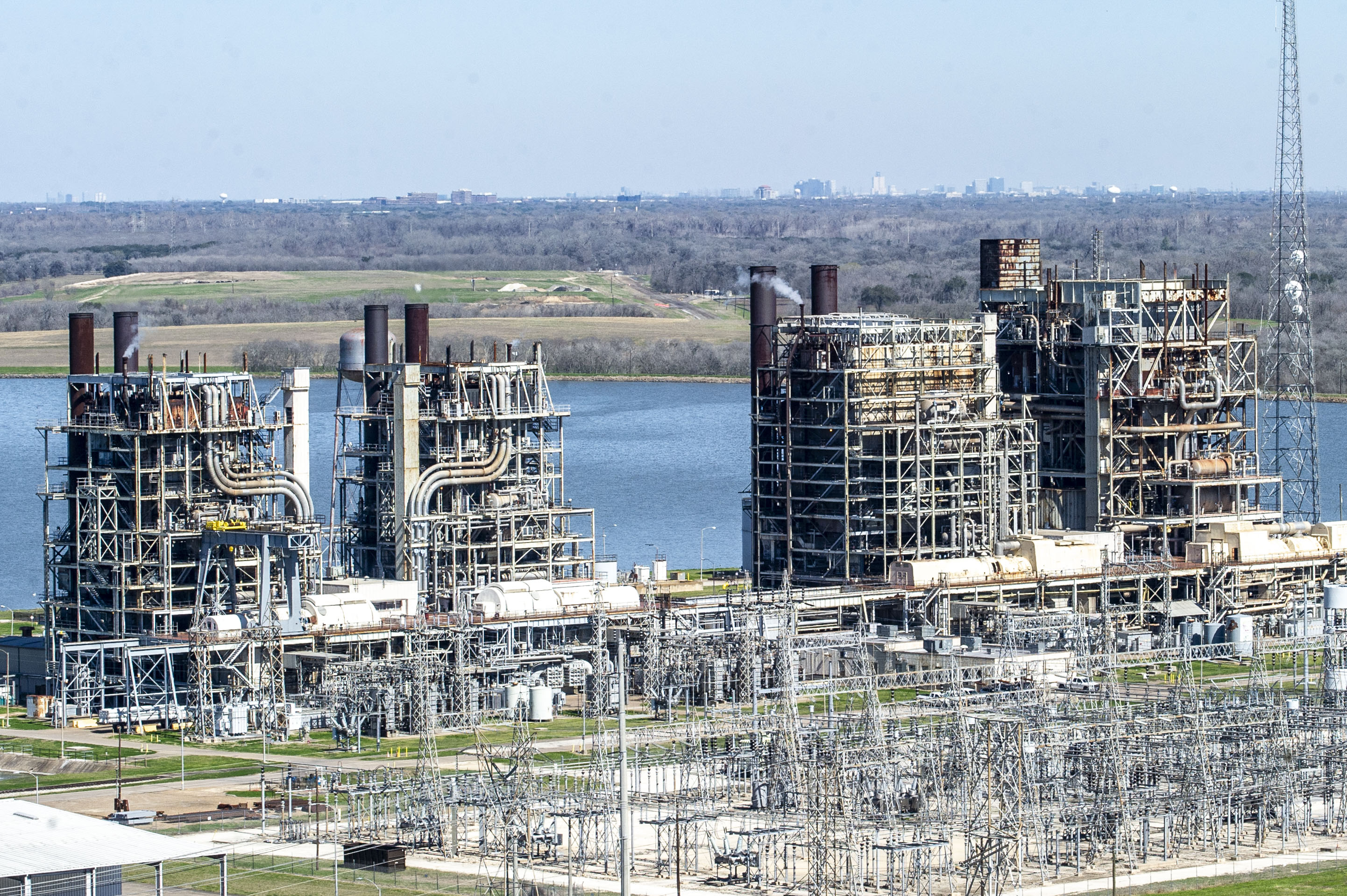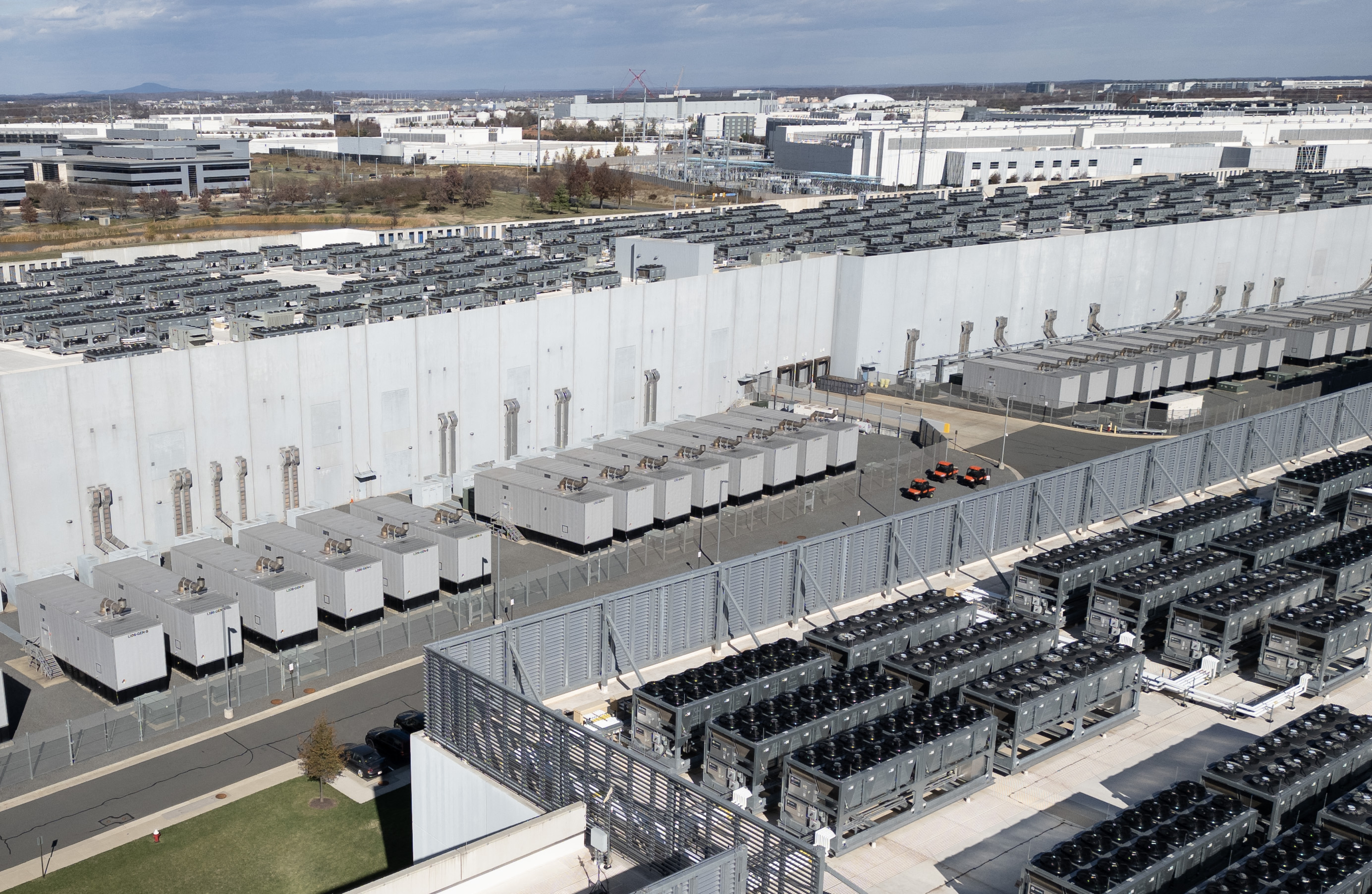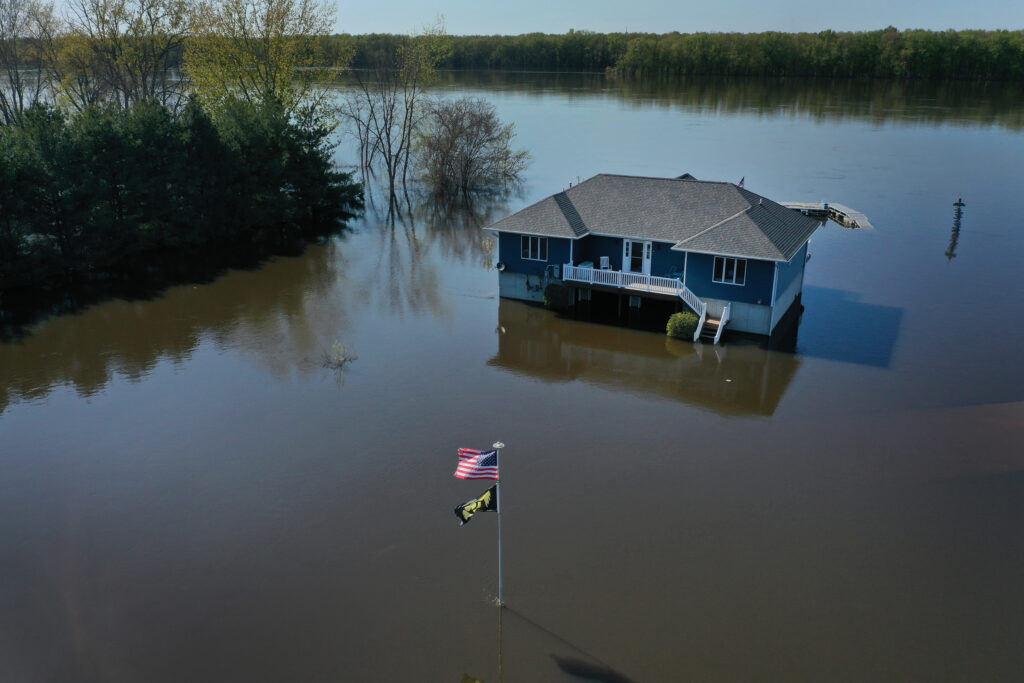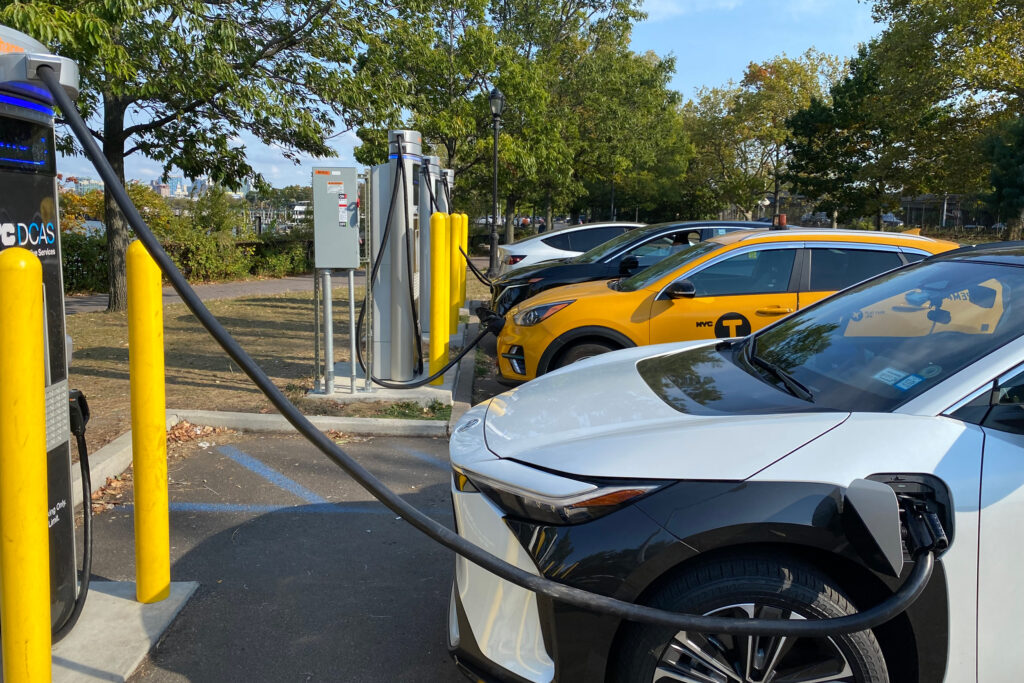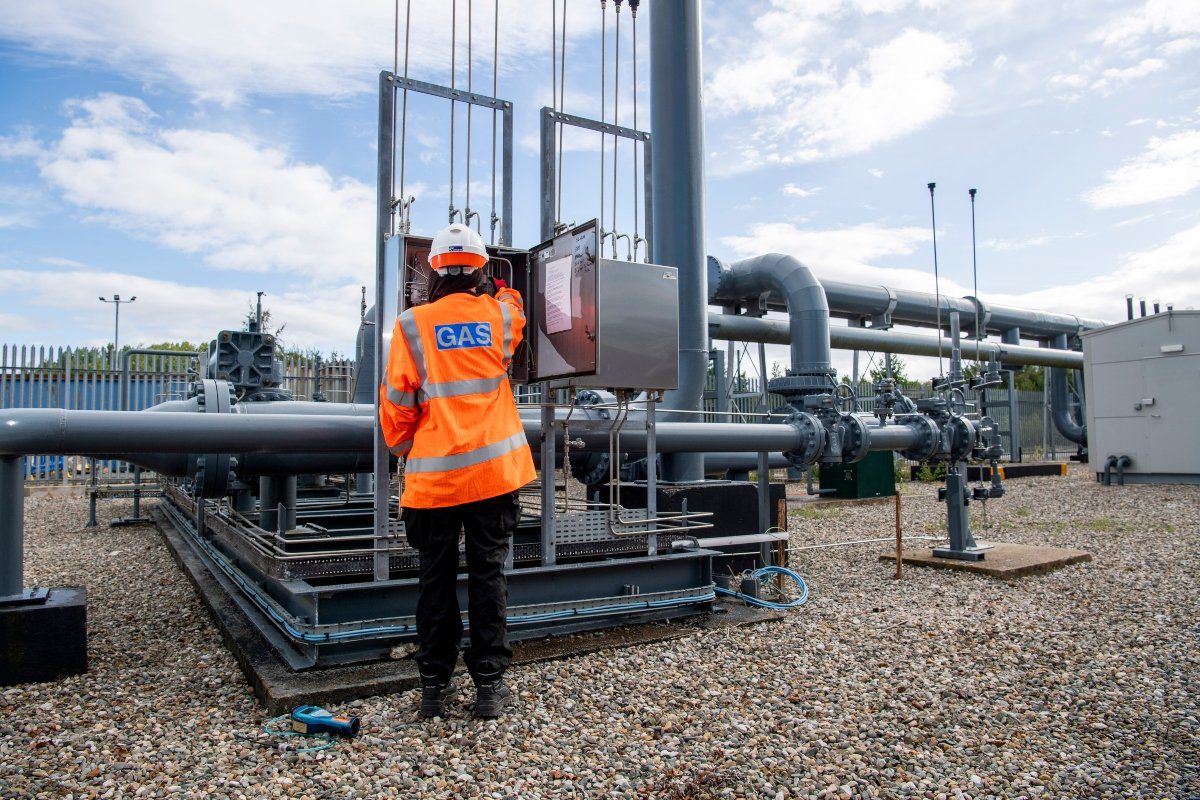After stripping consideration of environmental justice issues and climate costs from its final analysis of the project, President Donald Trump’s administration opened one of its first sales of oil and gas leases on federal land Thursday.
The offering by the Department of Interior’s Bureau of Land Management was a relatively small one—seven parcels covering 1,317 acres in southeastern New Mexico, in the oil- and gas-rich Permian Basin. But the administration used the sale to showcase its new pro-development approach to energy production, free of the constraints that bound President Joe Biden’s administration. Ultimately, BLM garnered $20.7 million from the sale, with 25 bidders competing for the tracts.
Ironically, environmental justice and climate considerations did not hold back the Biden administration when it came to the New Mexico sale. Like the Trump administration, it concluded that there would be no significant environmental impact to leasing the land. The Biden-led BLM had announced last November that it planned for the sale to go through.
But the Trump administration has now made clear that it does not intend to map out the racial and ethnic makeup of lease locations in order to assess whether a sale might have disproportionate impacts on minority populations. As for the costs of increased greenhouse gas emissions, BLM said it was under no legal obligation to perform such an analysis—an assertion that lawyers for environmentalists familiar with the project dispute.
We’re hiring!
Please take a look at the new openings in our newsroom.
See jobs
The Trump administration said the “social cost of greenhouse gas” calculations that the Biden administration incorporated throughout federal decision-making provided an unbalanced picture. These failed to consider the “benefits” of greenhouse gases, BLM officials wrote.
“Costs attributed to [greenhouse gases] are often so variable and uncertain that they are unhelpful for BLM’s analysis,” the environmental assessment of the New Mexico project said. “The full social benefits of carbon-based energy production have not been monetized, and quantifying only the costs of GHG emissions, but not the benefits, would yield information that is both potentially inaccurate and not useful.”
Environmentalists blasted the administration for the revisions, which they said were highly unusual, since the document already had been revised by the Biden administration in response to public notice and comment last year. They said courts repeatedly have required BLM to quantify the GHG emissions impacts of leasing, and the social cost of greenhouse gas estimates that the Biden administration used were a well-supported tool for doing so.
“The Trump administration appears desperate to ignore reality, but wishful thinking can’t erase climate change,” said Ben Tettlebaum, director and senior staff attorney with The Wilderness Society, a conservation nonprofit. “Nor can the administration ignore its obligation to properly analyze the devastating effects of greenhouse gas emissions stemming from its oil and gas leasing decisions, as it has attempted to do for this sale.”
‘Prioritize Efficiency’
The New Mexico lease sale environmental assessment arrived the morning after the White House Council on Environmental Quality launched an overhaul of the entire process of such assessments, which are conducted under one of the foundational U.S. environmental laws, the National Environmental Policy Act, or NEPA.
NEPA doesn’t restrict federal agency actions, but requires detailed environmental study of any major federal actions. Because those studies involve public notice and comment, communities see the process as their main vehicle for weighing in on federal permitting, oil, gas and mineral sales and the like. But industries have often criticized the process for slowing down decision-making.
On Wednesday, CEQ moved to rescind all regulations that had been put in place to implement NEPA since the presidency of Jimmy Carter nearly 50 years ago. In their place, the Council posted guidance on the Department of Energy website that said federal agencies should expedite permitting, “prioritize efficiency and certainty over any other policy objectives,” and should not include any environmental justice considerations in their NEPA determinations. Trump has not yet appointed someone to lead CEQ; the guidance was signed by the current chief of staff, Katherine Scarlett, a former staffer to Senate Republicans who focused on NEPA issues.
This story is funded by readers like you.
Our nonprofit newsroom provides award-winning climate coverage free of charge and advertising. We rely on donations from readers like you to keep going. Please donate now to support our work.
Donate Now
The rescission of the regulations will have to go through a public notice and comment period before it is finalized. In the interim final rule that rescinded the regulations, CEQ said the changes were necessary because of a decision made earlier this month by a federal judge in North Dakota, who threw out Biden’s NEPA regulations. U.S. District Judge Daniel Traynor, an appointee from Trump’s first term, issued a sweeping ruling in favor of 20 Republican-led states, saying that CEQ never had authority to write implementing regulations for NEPA at all.
BLM’s handling of the New Mexico lease sale makes clear that new NEPA policy is already being implemented.
Both the Biden and Trump administrations concluded that the lease sale, which would result in a 0.02 percent increase in the number of wells over the 45,579 existing active wells, would not have a significant effect on the human environment that could not be mitigated by appropriate protection measures. No residences were located within the parcels that were up for sale, and only one parcel had a residence within 1.25 miles of its boundary.
But the Biden administration, unlike the Trump administration, had included a detailed demographic analysis of the area, showing that the total minority population in the surrounding Census tracts studied reached as high as 93 percent, significantly above than the U.S. average (41.1 percent). BLM did not comment in the Feb. 20 document on why it was eliminating the environmental justice analysis.
“It’s more like censorship than it is an actual well-reasoned decision,” said Rose Rushing, an attorney with the Western Environmental Law Center. “There’s no explanation of why those communities are no longer included, and these are the communities that have already borne the brunt of this oil and gas development and all kinds of fossil fuel extraction over the last 100 years. It’s so wrong and unfair to just completely and arbitrarily strip it out.”
A BLM spokesperson did not immediately return a request for comment on the changes made to the environmental assessment.
BLM did go into some detail in the document on why it had eliminated a calculation of the social cost of greenhouse gases. It cited the reasoning in Trump’s executive order Unleashing American Energy, signed on Inauguration Day, which described the social cost of greenhouse gases metric as “marked by logical deficiencies, a poor basis in empirical science, politicization, and the absence of a foundation in legislation.”
In fact, federal agencies have been required by law since the 1970s to conduct cost-benefit analyses on regulatory decisions that have large economic impacts. Economists developed the social cost of carbon over the past two decades to take into account that regulators were not weighing the costs of decision-making today against the high costs of climate change.
The metric has been hotly debated, especially how to account for costs far in the future. The Biden administration, after originally adopting the Obama administration’s benchmark of $51 per metric ton of carbon, ultimately arrived at a figure of $190 per ton. BLM’s analysis of the New Mexico lease sale, under Biden, estimated the social cost of the greenhouse gases that would be emitted over the lifetime of the leases to be between $235 million and $678 million.
But now the BLM has said not only would it not include the social cost of carbon emissions from its analysis, it argued that it was not necessary to do any cost-benefit analysis at all, since it did not consider the lease sale the kind of rulemaking that would require it under the law.
The courts will likely be asked to decide that issue. Although environmentalists said it was too early to tell if the New Mexico lease sale in particular would face a legal challenge, they said they would fight any effort to reduce public participation or scale back the environmental analysis included in the NEPA process.
“The Biden administration’s decisions weren’t perfect, and we often disagreed with those and litigated over them,” Rushing said. “But the new Trump-era decisions that we’re seeing—the complete removal of entire environmental justice analyses or climate change analyses—that’s something new that’s substantially worse. We can’t allow the federal government to make decisions on that basis.”
Nicholas Kusnetz contributed to this report.
About This Story
Perhaps you noticed: This story, like all the news we publish, is free to read. That’s because Inside Climate News is a 501c3 nonprofit organization. We do not charge a subscription fee, lock our news behind a paywall, or clutter our website with ads. We make our news on climate and the environment freely available to you and anyone who wants it.
That’s not all. We also share our news for free with scores of other media organizations around the country. Many of them can’t afford to do environmental journalism of their own. We’ve built bureaus from coast to coast to report local stories, collaborate with local newsrooms and co-publish articles so that this vital work is shared as widely as possible.
Two of us launched ICN in 2007. Six years later we earned a Pulitzer Prize for National Reporting, and now we run the oldest and largest dedicated climate newsroom in the nation. We tell the story in all its complexity. We hold polluters accountable. We expose environmental injustice. We debunk misinformation. We scrutinize solutions and inspire action.
Donations from readers like you fund every aspect of what we do. If you don’t already, will you support our ongoing work, our reporting on the biggest crisis facing our planet, and help us reach even more readers in more places?
Please take a moment to make a tax-deductible donation. Every one of them makes a difference.
Thank you,






